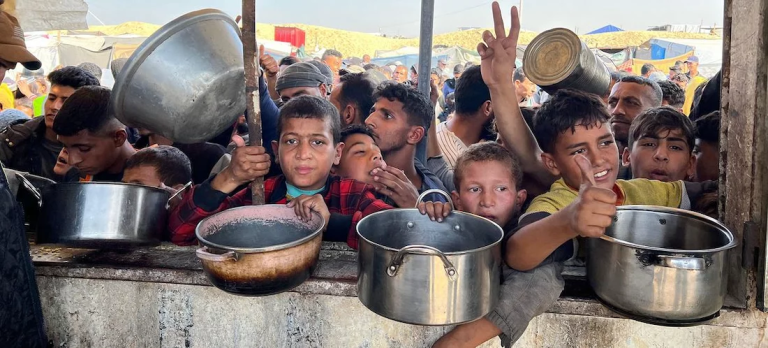
Traditional Partners Express Growing Concerns as International Investigations Document Systematic Violations

New York, N.Y. – The international community continues to grapple with mounting evidence of potential war crimes in Gaza as Israel’s traditional allies increasingly voice concerns about the conduct of military operations that have devastated the Palestinian territory since October 2023.
International Coalition Breaks Silence
Twenty-five countries including Britain, Japan, and multiple European nations issued a joint statement declaring the war in Gaza “must end now,” marking the latest sign of allies’ sharpening language as Israel’s diplomatic isolation deepens. The coalition includes traditional partners such as the United Kingdom, France, Australia, Canada, and the European Union, representing a significant shift in diplomatic rhetoric.
The signatories emphasized that “the suffering of civilians in Gaza has reached new depths,” calling for an immediate negotiated ceasefire and unrestricted humanitarian access to the besieged territory. This coordinated statement represents one of the strongest rebukes from Western allies since the conflict began following Hamas’s October 7, 2023 attack on Israel.
The diplomatic pressure comes as human rights organizations continue documenting what they characterize as systematic violations of international law. A U.N. Commission stated there is “clear evidence that war crimes may have been committed in the latest explosion of violence in Israel and Gaza, and all those who have violated international law and targeted civilians must be held accountable.”

Documenting Systematic Violations
Major international human rights organizations have compiled extensive evidence of potential war crimes committed during the ongoing conflict. Amnesty International’s research reveals that Israel has persisted in committing genocidal acts, fully aware of the irreparable harm being inflicted on Palestinians in Gaza.
Human Rights Watch concluded that Israeli authorities have caused the massive, deliberate forced displacement of Palestinian civilians in Gaza since October 2023 and are responsible for war crimes and crimes against humanity. The organization’s findings detail systematic patterns of violations that extend beyond isolated incidents to encompass broader military strategy and policy implementation.
The documentation includes extensive evidence of attacks on medical facilities and infrastructure. Israeli forces attacked hospitals, medical staff, and humanitarian workers, killing scores in drone and artillery attacks and air strikes. Of Gaza’s 36 hospitals, only 17 remained partly functional by the end of 2024 due to Israeli attacks.
European Allies Reconsider Trade Relations
The mounting evidence has prompted concrete policy changes among Israel’s traditional trading partners. Key allies, including Britain and European Union member states, have either suspended free trade negotiations or pledged to review commercial ties, warning the Israeli government that it needs to end military operations.
Some E.U. states are calling for a full suspension of trade relations while others are trying to distance themselves from the grisly images emerging from the enclave. These economic measures represent a significant escalation in diplomatic pressure, moving beyond verbal condemnation to tangible consequences.
The European response reflects growing domestic pressure on governments to align their foreign policy with stated human rights commitments. Parliamentary debates across multiple European capitals have featured heated exchanges about the complicity of arms sales and trade relationships with Israel during the ongoing military campaign.
International legal experts warn that continued support could expose allied nations
to potential accountability measures. Israel’s attack on Gaza could be in breach of
international law, raising questions about what this means for allies supplying arms.
Siege Tactics Draw International Condemnation
Recent military operations have intensified international scrutiny of Israeli tactics. Since March 2, 2025, Israel has re-imposed a total siege on Gaza, blocking the entry of all humanitarian aid, medicine, and commercial supplies, including fuel and food, in flagrant violation of international law.
Amnesty International characterized Israel’s siege as a genocidal act, describing it as a blatant form of unlawful collective punishment and the war crime of using starvation of civilians as a method of warfare. The organization documented how the blockade has prevented essential supplies from reaching approximately 2.3 million Palestinians trapped in the territory.
The use of siege tactics has particularly disturbed European allies who have historically supported Israel’s security concerns while maintaining commitment to humanitarian principles. The contradiction between stated values and practical support has created internal political pressure within allied governments.
U.N. agencies report that the humanitarian situation has deteriorated to catastrophic levels, with widespread malnutrition and the collapse of basic services throughout Gaza. Medical professionals describe conditions in remaining hospitals as apocalyptic, with surgeries performed without anesthesia and patients dying from treatable conditions due to lack of supplies.

Legal Accountability Measures Advance
The accumulating evidence has provided substantial material for various international legal proceedings against Israel. A U.N. Commission found war crimes and crimes against humanity in Israeli attacks on Gaza health facilities and treatment of detainees and hostages. These findings contribute to broader legal cases advancing through international courts.
The International Court of Justice has issued provisional measures ordering Israel to prevent genocidal acts, though compliance remains disputed. Meanwhile, the International Criminal Court continues investigating potential war crimes by all parties to the conflict, including both Israeli officials and Hamas leadership.
U.N. experts have suggested that European leaders could themselves face investigation for complicity in war crimes, stating “they will have to be judged before” history renders its verdict. This unprecedented suggestion reflects the growing international frustration with perceived inaction by allied governments.
The legal proceedings have created additional diplomatic complications for Israel’s allies, who must balance traditional support relationships with potential legal exposure. Several European governments have initiated internal reviews of arms sales and military cooperation agreements to assess compliance with international law obligations.
Future of Alliance Relationships
The mounting evidence of war crimes has fundamentally altered the strategic calculus for Israel’s traditional allies. Long-standing partnerships built on shared democratic values and security cooperation now face unprecedented strain as documented violations contradict stated humanitarian commitments.
Britain has threatened to take further action against Israel if it does not agree to end the war in Gaza, representing a significant escalation in diplomatic pressure from one of Israel’s closest allies. Similar warnings have emerged from other European capitals, suggesting a coordinated approach to increasing pressure.
The diplomatic crisis extends beyond immediate military operations to encompass broader questions about the sustainability of current alliance structures. Foreign policy analysts predict that the relationship between Israel and its Western allies may never fully recover to pre-October 2023 levels, regardless of how the current conflict concludes.
The evidence of systematic violations has created lasting damage to Israel’s international standing and forced allied governments to confront uncomfortable questions about their own complicity through continued support. As documentation continues to accumulate, the pressure for accountability measures will likely intensify, further complicating diplomatic relationships and potentially reshaping Middle Eastern geopolitics for years to come.
25 Nations: Israeli Allies See Evidence of War Crimes Mounting (July 24, 2025)
A 75-word Summary
International allies are distancing themselves from Israel as evidence of war crimes in Gaza accumulates. Twenty-five countries, including the U.K., France, and Canada, have demanded the war “must end now.” Human rights organizations document systematic violations including attacks on hospitals, forced displacement, and the use of starvation as warfare. The mounting evidence strains diplomatic relationships and raises questions about complicity among nations providing military support to Israel’s operations.